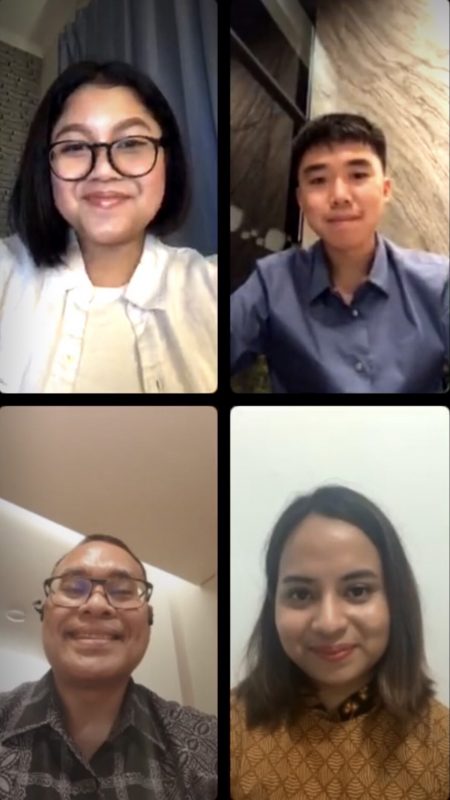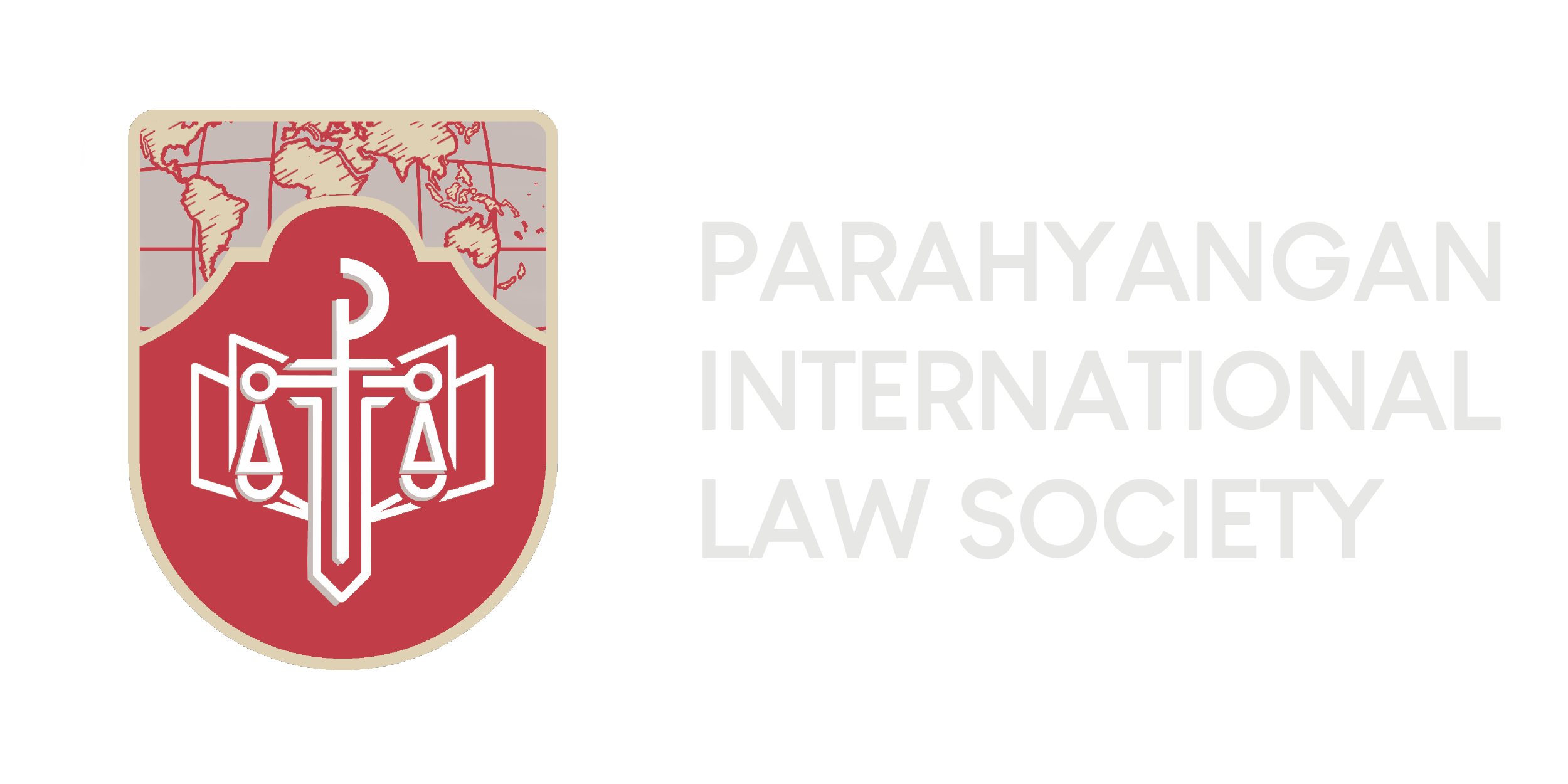Written by Shaunelee Alcinia Yanni
Edited by Nadya Theresia

On 21 February 2022, Russia infamously, and some might claim unfoundedly, invoked the prevention of genocide to justify their invasion of Ukraine. Stating no more than, in the words of Ukraine, “not a single day goes by without Donbas communities coming under shelling attacks,” with “no other supporting evidence”, Russia’s invasion and its invocation of the genocide prevention argument prompted Ukraine to bring forth this dispute to the International Court of Justice (“ICJ”) concerning the interpretation, application and fulfilment of the 1948 Convention on the Prevention and Punishment of the Crime (“Genocide Convention”). Together with its application, Ukraine also submitted a request for provisional measures to suspend Russia’s military operations which commenced on 24 February 2022.
Utilizing Instagram Live as a platform, Parahyangan International Law Society (“PILS”) collaborated with the Indonesian Society of International Law (“INASIL”) to discuss this issue in international law as it unravels in real time. Over 80 people attended the first IG Live session on 11 March 2022, titled ”Sengketa Ukraina-Rusia Masuk Pengadilan Internasional – What’s Next? (Edisi #1: International Court of Justice) as international law scholars shared their expert opinion on the issue surrounding Ukraine and Russia’s dispute in the ICJ.
Mahdiyah Basuki, delegate of the UNPAR Team in the 2021 and 2022 Philip C. Jessup International Law Moot Court Competition’, opened the instagram live session by introducing esteemed speakers, Professor Hikmahanto Juwana, S.H., LL.M., Ph.D, International Law Professor from University of Indonesia and Founder of the Indonesian Society of International Law; and Ms. Anna Anindita Nur Pustika, S.H., M.H., International Law Lecturer from Parahyangan Catholic University.
The introduction was followed by Ms. Pustika’s explanation of the background of the Russia and Ukraine issue. The two territories in Ukraine, Donetsk and Luhansk regions, collectively known as Donbas, have been the center of conflicts between the Ukrainian Army and Russian-backed separatists following Russia’s annexation of Crimea. At the height of the conflict, as many as 14,000 died in the region. The 2014 Minsk Agreement between Russia and Ukraine, two of the goals of which is to implement a ceasefire and humanitarian assistance among others, were ineffective due to unimplemented measures. For one, Russia contends that it cannot withdraw foreign armed formations as agreed because these armed formations were not sent by Russia in the first place. And thus, as Foreign Policy put it, “the 2015 Minsk Agreement is flawed– but it’s all there is.”
Ms. Pustika continued that on 24 February 2022, Russia launched a special military operation to prevent and punish an alleged genocide in the Luhansk and Donetsk oblasts of Ukraine. Ukraine denies any existence of this alleged genocide and subsequently brought forth this dispute to the Court to “establish that Russia has no lawful basis to take action in and against Ukraine for the purpose of preventing and punishing any purported genocide.”

William Chindrawa, Director of Finance Marketing and Human Resource of INASIL, was present as a moderator of the discussion and raised a question regarding Ukraine’s invocation the Genocide Convention. Professor Juwana pointed out Ukraine’s position in their claim to the ICJ: by requesting the Court to assess and adjudge the consistency of Russia’s interpretation of ‘genocide’ with the Genocide Convention’s, Russia must cease its special military operation in Ukraine should the Court decide that those interpretations are inconsistent.
Ukraine also filed a counter-claim against Russia for carrying out acts of ‘genocide’ by intentionally killing and inflicting serious injury on Ukrainian nationals. Ms. Pustika further stated that Article 9 of the Genocide Convention extends the ICJ’s jurisdiction over the Genocide Convention’s interpretation as it provides that any dispute regarding the interpretation or application of the Genocide Convention must be brought forth to the Court. Ukraine also requested the ICJ to issue provisional measures to obligate Russia to cease its military operation in Ukraine.However, to this date, the Court has not issued any provisional measure.
The discussion moved to whether the ICJ has the power to enforce its decisions upon States. Professor Juwana asserted that enforcement has always been a problem under international law as international law has yet to become a norm that every State subscribes to. Superpower States often do not conform to the ICJ’s decisions as international law lacks executorial power, citing the United States’ reaction to the 1986 Nicaragua judgment as an example. This implies that Russia, a superpower State, might disregard the ICJ’s decision.
In turn, Ms. Pustika cited Article 59 of the ICJ Statute, which provides that, in principle, the Court’s decisions are only binding to the parties involved in a dispute. She agreed that whether the ICJ’s decision will be carried out by States relies on the State’s own good intention and will to carry out its international obligations. However, Ms. Pustika pointed out that should the ICJ find for Ukraine and if Russia chose not to adhere to the ICJ’s decision, international law will still be carried out by States, one example of which takes the form of applying sanctions to Russia. In the end, international law is the guide by which States look to lawfully respond to an international dispute and to try and maintain peace and security.
For more, watch the complete IG Live session here.
Shaunelee Alcinia Yanni is a second-year law student at the Law Faculty of Universitas Katolik Parahyangan and of Parahyangan International Law Society. She is currently a delegate competing in the 2022 Philip C. Jessup International Law Moot Court Competition. She had competed in the 2021 Asia Cup International Law Moot Court Competition and her team placed as the First Runner-Up and won the Best Memorials Award.
